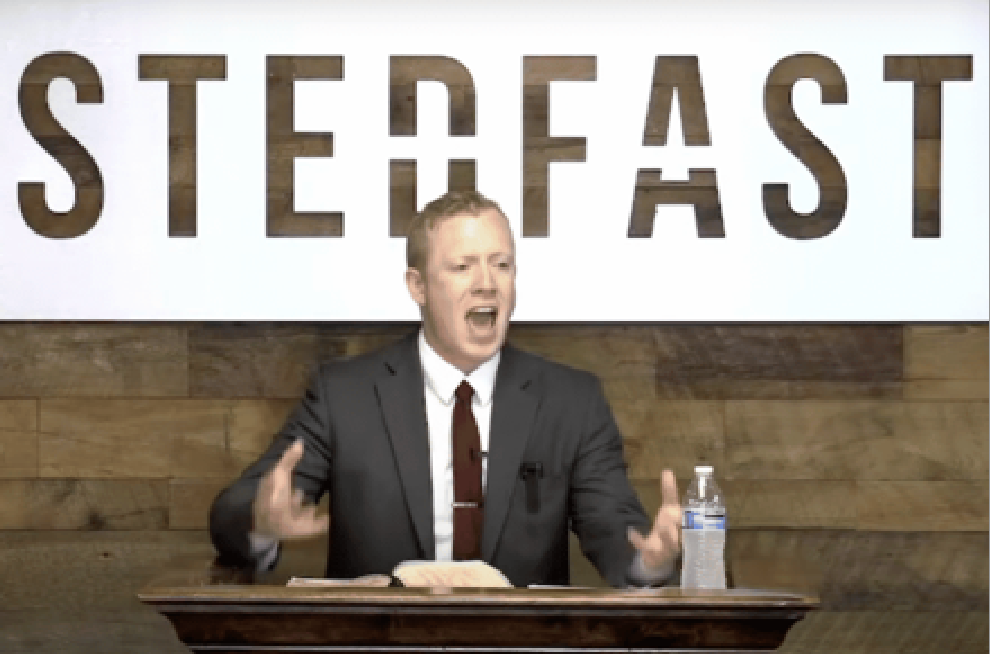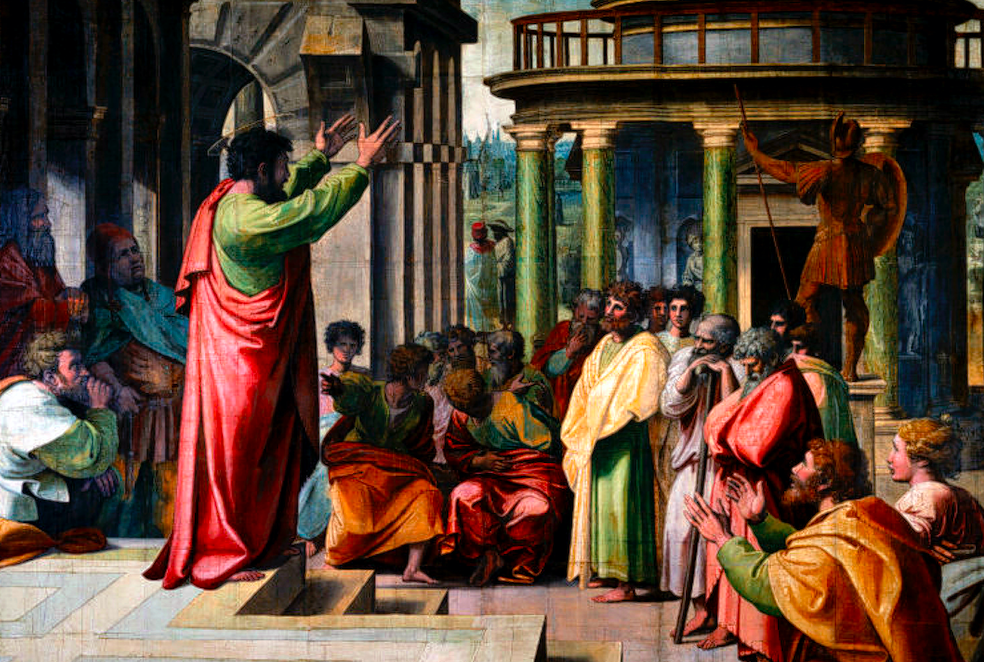
The Bully Pulpit
Free Speech and Hate Speech can sound pretty similar, but the difference is really profound.

Dillon Awes, Stedfast Baptist Church via YouTube
Pastor Dillon Awes strode to the pulpit in Watauga Texas this week and exclaimed, “The solution to gay people is presented in the Bible: They should be lined up against the wall and shot in the back of the head."
In a sermon entitled "Why We Won't Shut Up," Awes, of Stedfast Baptist Church, instructed the congregation on Sunday that "every single gay person in America should be executed by the government.”
"What does God say about homosexuals in 2022,” Awes asked, pointing to the New Testament? "That they’re worthy of death. These people should be put to death!"
Homosexuality, The Bible
Stedfast’s main pastor, Johnathan Shelley, later clarified that Awes, who preaches when Shelley is out of town, was simply citing the New Testament. Specifically, the Pauline Epistles including; Romans, Corinthians, and Timothy which were written some 55 – 57 years following the birth of Jesus.
The references to homosexuality, and their translations, all hinge on the interpretation of three specific Koine Greek terms (arsenokoitēs, malakos, and porneia) along with their cognates. It’s not disputed the terms apply to same-sex relationships, and many biblical scholars agree they refer to and forbid homosexuality.
However, other biblical scholars disagree. Homosexuality Revisited in the Light of the Current Climate suggests "these passages may speak to a prohibition against pederasty and prostitution," theologian Calvin Smith argues, "which were rampant within Corinthian temples during Paul’s three-month trek through Greece.”
Smith continues. "While Jesus was expelling merchants and money changers from the temple in Jerusalem, it's worth considering that his apostle, Paul, may have been doing the same in Corinth."

Areopagus Sermon (Paul in Athens)
Free Speech, Hate Speech
"The freedom to swing your arms,” says Stuart Chase, the American economist, “ends where my nose begins.”
Freedom of speech, in principle, is the freedom of an individual or community to articulate opinion without fear of retaliation, censorship, or legal sanction. Conversely, hate speech is the liberty of an individual or community to articulate opinions that encourage violence. So what happens when our liberties conflict with other’s freedoms?
That answer also lies in two specific Koine Greek terms: isegoria and parrhesia. Together, they mean freedom of speech, appearing for the first time in the fifth century, yet their separate and distinct meanings are key. In ancient Athens, Isegoria referred to the equal right of all citizens to participate in public debate in a democratic society. Parrhesia referred to doing so — passionately.
The architects of the US Constitution understood they were a package deal, creating the First Amendment to conjoin everyday opinions with the general consensus. Otherwise, the nation as a whole wouldn't have a voice.

Walt Disney World, June 2022
Don’t Say Gay
On Friday evening, over 6,000 people poured into Walt Disney World in Orlando Florida to celebrate Gay Pride Month. “For one night, Disney’s Typhoon Lagoon Water Park becomes entirely yours for the party of the year,” Disney World promised. “Be part of the magic!”
In March, Disney became entangled in a heated dispute with Florida’s Governor Ron DeSantis; who was promoting state legislation intended to prohibit classroom discussion of sexual orientation and gender identity through the third grade, and censoring what teachers could present regarding the Gay Rights and Transgender Movements in America. A torrent of 44 companies including — Google, Apple, Amazon, Microsoft and American Airlines — all criticized the bill, colloquially referring to it as “Don’t Say Gay.”
But when an actual rainbow arched over the thunder-shower-soaked water park on Friday night — a dispersion of water, a refraction of light — a universal emblem of hope, promise, equality and peace was recognizable to all.
That Awes' remarks coincide with America’s Pride Month — a nation which prohibits employment discrimination (Bostock v. Clayton Co.), celebrates same-sex marriage (Obergefell v. Hodges), and criminalizes hate crimes (Matthew Shepard Crimes Prevention Act) — demonstrates how opinions, passions and consensus all co-exist in an experiment with democracy that would make the Greek’s proud.






